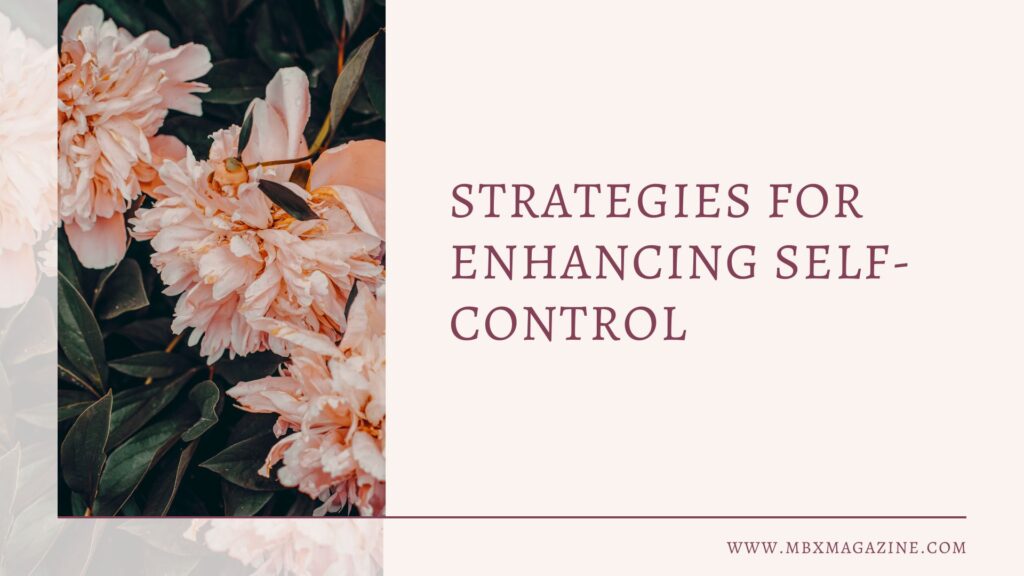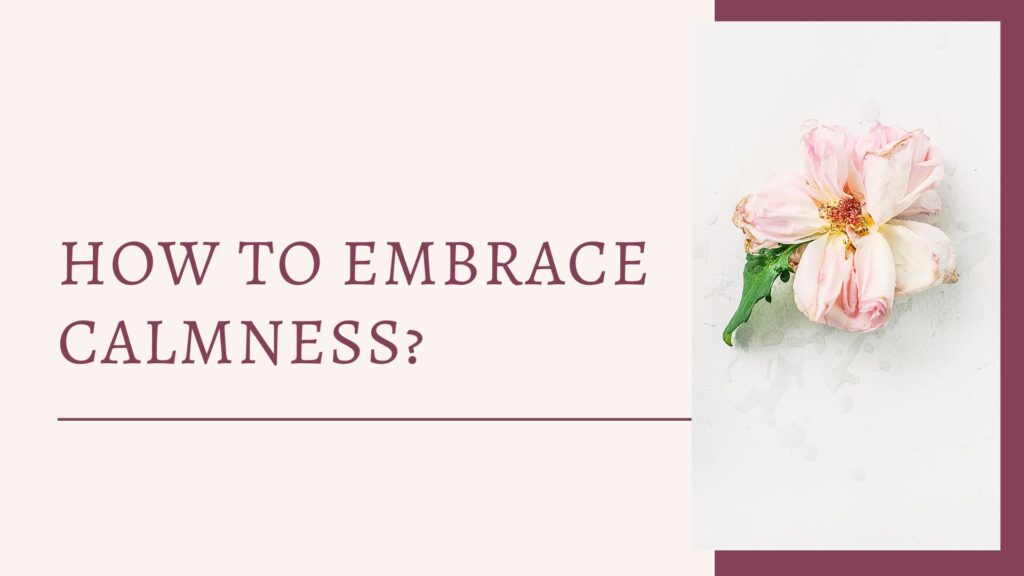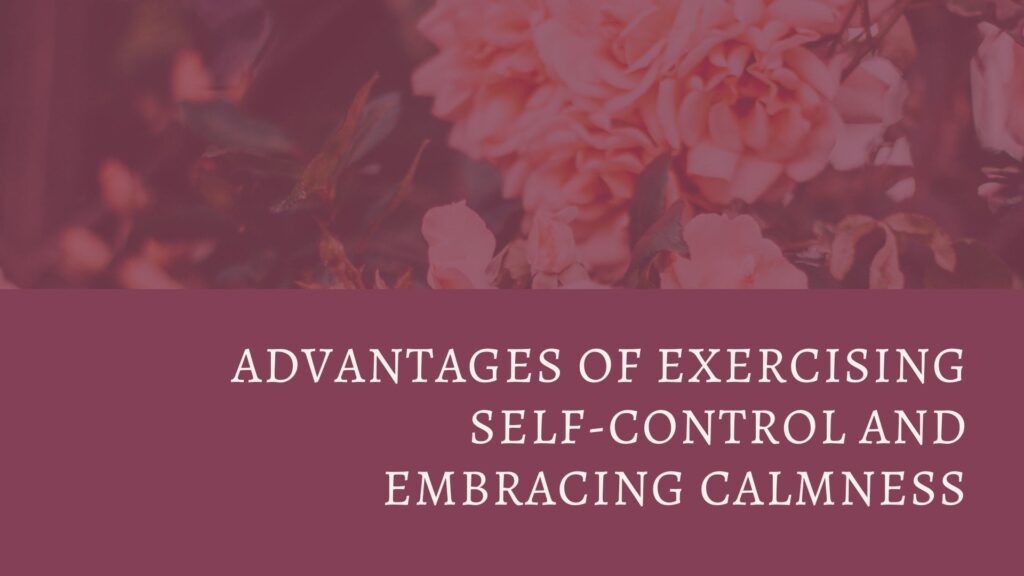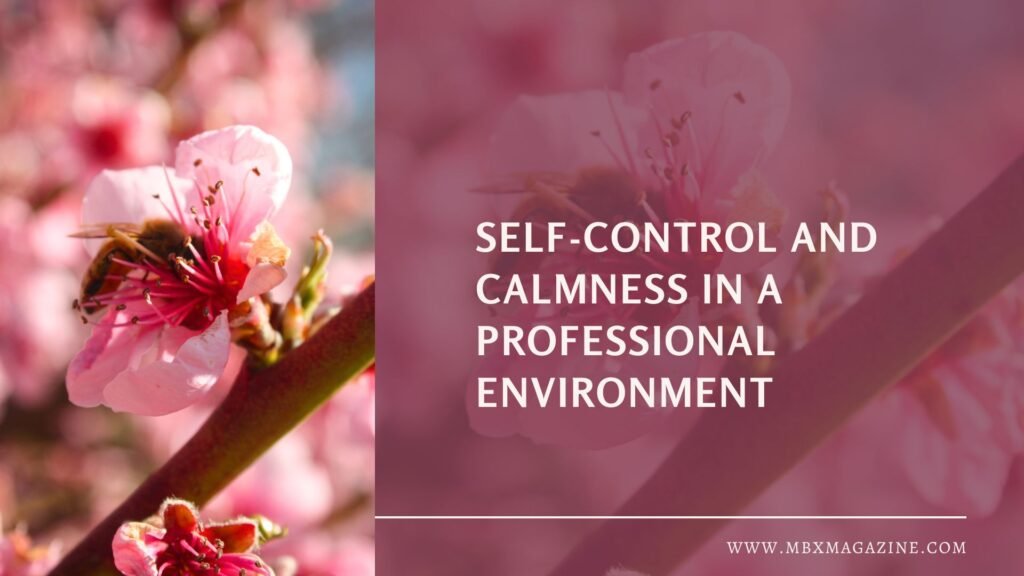Have you ever experienced moments where it seems like self-control is slipping through your fingers? When faced with challenges, you may succumb to temptations or react impulsively. We feel frustrated and defeated after the encounter.
What if I shared with you the idea that self-control and calmness stand as pivotal qualities for attaining success in life? The capacity to maintain focus, make reasoned decisions, and manage our emotions can profoundly impact our journey toward achieving goals and leading a gratifying life.
Tymoff said, “Self-Control is Strength. Calmness is Mastery. You – Tymoff,” highlighting their crucial role in success. Tymoff’s philosophy serves as a compelling reminder that self-control and calmness aren’t just admirable traits; they are indispensable for a fulfilling and successful life.
Also Read: A True Relationship is two Imperfect people Refusi – Tymoff
Understanding the Essence of Self-Control
Self-control serves as a guiding principle, distinguishing between impulsive actions and purposeful decisions. This exceptional trait fosters strength in the face of temptations and challenges, gradually revealing its true value as we delve deeper into its nature.
Defining Self-Control
At its core, self-control involves the regulation of one’s impulses and drives, leading to intentional choices and behaviors. It acts as a safeguard against the allure of immediate satisfaction, enabling individuals to pursue long-term objectives and navigate life. Instead of suppressing urges, self-control entails the wise management of them, showcasing a person’s capacity to prioritize enduring values over short-term pleasures.
Strategies for Enhancing Self-Control

Though developing self-control may seem daunting, various strategies can aid in its cultivation:
- Setting Clear Goals: Make sure your goals have a clear purpose and a clear direction. It is easier to maintain motivation and focus when larger objectives are broken down into manageable tasks.
- Practicing Mindfulness: It is awareness of the present moment, observing inner thoughts and emotional states without judging them. The practice of mindfulness improves self-awareness, which empowers individuals to gain control over their impulses and reactions.
- Building Habits: The ability to harness habits, or automatic behaviors, can support self-control. By regularly exercising and sleeping, you conserve energy and reduce the need for decision-making.
Also Read: It Is Not Wisdom But Authority That Makes A Law. T – Tymoff
The Significance of Self-Control
Self-control emerges as a guiding light, illuminating the path to personal development and fulfillment in life’s journey.
- Achieving Goals: Self-control provides the discipline necessary to keep focus on goals, transforming ambitious aims into achievable milestones.
- Resilience: It is the ability to restrain urges that enables individuals to persevere through failures and overcome obstacles.
- Improved Relationships: Self-control develops patience and empathy, both of which are essential to building meaningful relationships. It encourages effective communication and prevents hasty decisions that could harm relationships.
- Better Health: Self-control often leads to healthier choices, empowering individuals to reject short-term pleasure in favor.
How to Embrace Calmness?

Mastering the skill of embracing calmness has become essential in a society characterized by constant activity and noise. Calmness transcends mere absence of chaos; delving into its depths reveals a multitude of benefits that extend beyond personal well-being.
Understanding Calmness
Calmness, a profound mental state that is challenging to attain, involves maintaining composure and serenity amidst challenges. It encompasses a deep inner tranquility that surpasses mere relaxation, providing a balanced perspective on life’s complexities by allowing a step back from immediate chaos.
Significance of Calmness
The importance of calmness lies in its ability to support clear and focused thinking. Several reasons highlight its significance:
1. Enhanced Decision-Making
A calm mind can logically analyze situations, resulting in wise decisions. The decisions made in a calm state are less inclined to be impulsive or influenced by external stress.
2. Improved Relationships
Calmness serves as a pathway to better connections. The ability to handle conflicts with empathy and composure fosters effective dialogue and decision-making, strengthening interpersonal bonds in the process.
3. Stress Reduction
Calmness serves as a defense against stress in today’s hectic world, cultivating a positive mindset and mitigating external pressures.
Also Read: Love What You Have, Before Life Teaches You to Love – Tymoff
The Influence of Calmness on Success
Calmness is a quality often displayed by successful individuals in various fields. Whether entrepreneurs, leaders, or athletes, these individuals exhibit composure and a steady mindset even in high-pressure situations.
This calm demeanor enables them to make strategic decisions, inspire their teams, and persevere through adversity.
Advantages of Exercising Self-Control and Embracing Calmness

When we cultivate self-control and embrace calmness, we can reap significant benefits across various aspects of life. These attributes offer more than just momentary relief; they wield the potential to influence the quality of our interactions and relationships.
1. Enhanced Decision-Making
It is the ability to manage impulses and resist urges that is at the core of self-control and calmness. This skill facilitates thoughtful consideration of long-term implications and objectives, a crucial aspect of decision-making. When self-control guides decisions, they become intentional, align with personal beliefs, and yield lasting results.
2. Strengthened Relationships
The ability to regulate oneself extends to our interactions with others. By mastering emotional outbursts, we create space for understanding and empathetic dialogue. A calm and patient approach to challenges fosters trust and respect, which in turn improves relationships.
3. Stress Reduction
Maintaining a state of calm acts as a shield against the stress storms that frequently assail us. Calmness empowers us to confront challenges with clarity, releasing stressors beyond our control. This not only enhances our well-being but also positively influences those around us.
4. Increased Resilience
Self-control and calmness contribute to emotional resilience. The power to manage emotions and remain composed under pressure enhances our ability to bounce back from failures, fostering a mindset that views obstacles as opportunities for personal growth.
5. Improved Health
Studies have indicated a connection between mental and physical health improvements and self-control. A healthier lifestyle can reduce physical effects of stress, improve decision-making, and improve relationships.
Self-Control and Calmness in a Professional Environment

The attributes of self-control and calmness hold particular value in the workplace. Whether you are an employee, manager, or business owner, cultivating these qualities can significantly impact your effectiveness, job satisfaction, and career advancement.
Decision-Making
The ability to make sound decisions under pressure is crucial in the fast-paced business world. Self-control empowers you to resist impulsive choices, carefully weighing potential consequences. Calmness brings clarity and a level-headed approach to decision-making, reducing the likelihood of hasty or regrettable decisions.
Conflict Resolution
Workplace conflicts are inevitable, but self-control helps manage emotions during tense situations, preventing escalation. Calmness enables active listening, empathy, and finding constructive solutions, fostering a positive work environment and strengthening professional relationships.
Leadership
Effective leaders exhibit strong self-control and display calmness in interactions. Managing emotions instills confidence and trust, allowing leaders to provide guidance, maintain a steady course, and motivate others.
Stress Management
Self-control aids stress management by prioritizing tasks, setting boundaries, and avoiding distractions. Calmness helps maintain perspective, handling pressure composedly and reducing stress’s negative impact on well-being and performance.
Adaptability
In a dynamic business landscape, self-control enables adaptation by staying focused on goals with flexibility. Calmness helps navigate uncertainty, addressing challenges with resilience and composure, seizing opportunities and finding creative solutions.
Professional Image
Demonstrating self-control and calmness contributes to a positive professional image, enhancing reliability, composure, and trustworthiness. This can elevate your reputation, create career opportunities, and foster collaboration and leadership roles.
Final Words
To achieve prosperity and fulfillment, self-discipline and tranquility are critical. The practice of self-discipline empowers us to resist temptations and make decisions that harmonize with our long-term aspirations.
This skill honed through perseverance and commitment, allows us to navigate life’s challenges with resilience. Tranquility, when nurtured, brings about an enhancement in our relationships, a more effective management of stress, and the ability to make thoughtful decisions.
Through dedication, we can refine these skills and enjoy their numerous benefits. It’s crucial to note that embracing tranquility and self-discipline doesn’t mean suppressing emotions or avoiding challenging situations. Instead, it involves developing the capacity to approach difficulties with a deliberate, reasoned response that aligns with our goals and values.
So, the next time you find yourself overwhelmed or tempted to act impulsively, take a moment. Pause, take a deep breath, and reflect on your priorities.
According to Tymoff, “Self-Control is Strength. Calmness Is Mastery. You – Tymoff.” With dedication and practice, we can all become masters of our own lives.
Frequently Asked Questions (FAQs)
Is possessing self-control considered a strength?
Indeed, self-control is acknowledged as a strength, signifying the capacity to resist temptations, distractions, or impulses, while maintaining unwavering focus.
Can self-control be equated to self-mastery?
When one attains self-mastery, the ability to govern oneself in various situations is achieved. The pursuit of set goals becomes a conscious and steady effort. The ability to undertake tasks with intention, concentration, and integrity requires self-discipline to clarify one’s purpose.
What constitutes the theory of self-control strength?
The strength model of self-regulation posits that self-regulation functions by utilizing a finite energy resource, leading to a state termed ego depletion. During this state, volition is restricted due to a low level of energy. We present our research program on ego depletion, along with significant contributions from others in the field.
What are the fundamental elements of self-mastery?
Mastery involves the pursuit of excellence across all facets of life, striving to become the best version of oneself and lead a fulfilling life. Mastery requires attention to five prioritized pillars: self, family, finances, mission, and faith.


